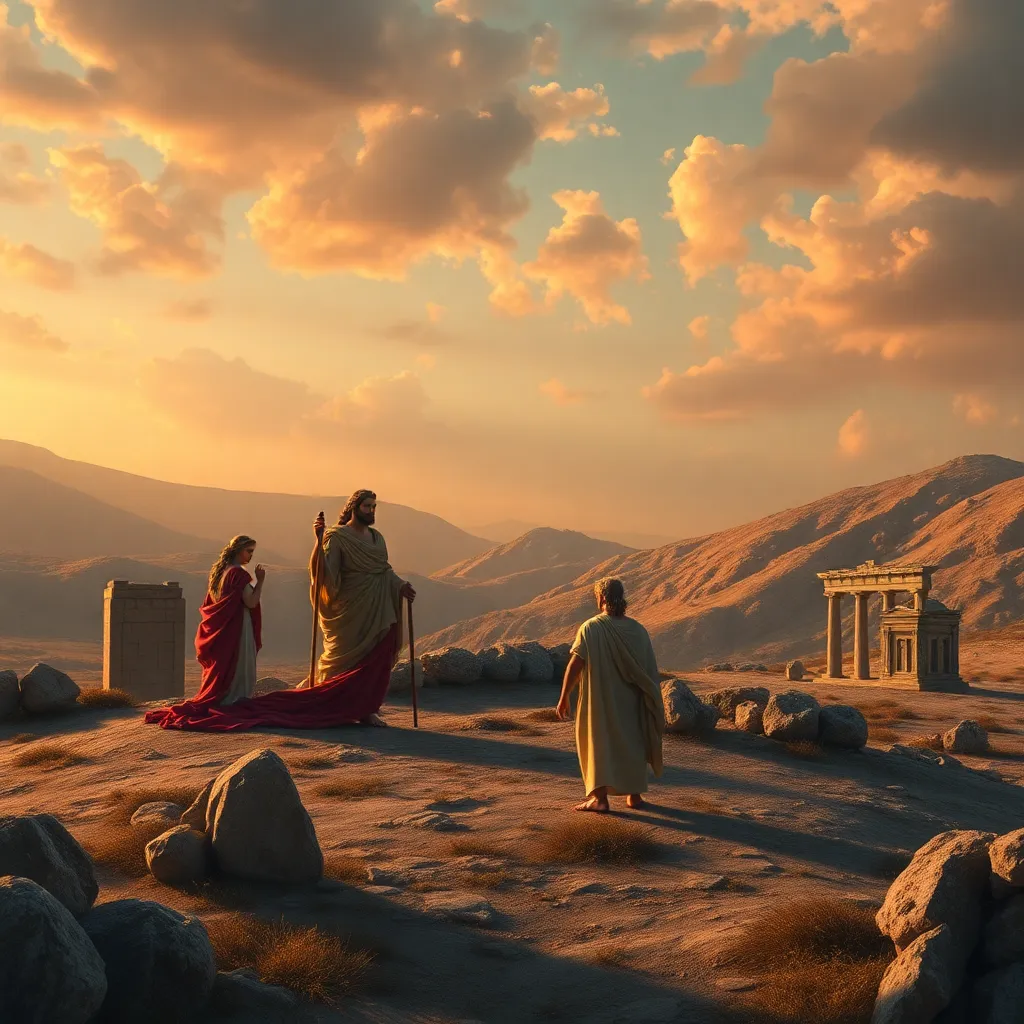The Iliad’s Influence on Modern Adaptations and Retellings
I. Introduction
The Iliad, attributed to the ancient Greek poet Homer, is one of the pivotal texts of Western literature. Composed in the 8th century BCE, it narrates the events of the Trojan War, focusing on the hero Achilles and his conflict with King Agamemnon. Its historical significance lies not only in its narrative but also in its exploration of themes such as honor, fate, and the human condition.
The enduring legacy of The Iliad is evident in its continued relevance across various forms of literature and culture. It has inspired countless works, adaptations, and interpretations throughout history, demonstrating its capacity to resonate with audiences across generations.
This article aims to explore the modern adaptations and retellings of The Iliad, examining how its themes and narratives have been reinterpreted in contemporary society.
II. Thematic Elements of The Iliad
The Iliad is rich with thematic elements that continue to be relevant today. Key themes include:
- War: The brutal reality of conflict and its consequences on individuals and societies.
- Honor: The code of honor that drives the characters’ actions and decisions.
- Fate: The struggle against destiny and the inevitability of death.
- Heroism: The exploration of what it means to be a hero in both personal and societal contexts.
These themes resonate deeply in contemporary society, where discussions on war and heroism remain pertinent. Modern storytelling harnesses these elements, often reflecting on the complexities of conflict and the moral dilemmas faced by individuals.
III. Literary Adaptations
Notable literary retellings of The Iliad have emerged in recent years, with authors like Madeline Miller bringing fresh perspectives to the ancient text. Her novels, Circe and The Song of Achilles, delve into the lives of characters often overshadowed in the original epic.
When comparing narrative techniques, Miller employs a first-person perspective that allows readers to engage intimately with the characters’ emotions and motivations. This contrasts with the more distant, third-person narrative of The Iliad. The character development in these retellings also explores the complexities of love, loyalty, and identity, adding depth to the original archetypes.
The impact of these adaptations on the perception of The Iliad is significant; they invite readers to view the epic through a modern lens, challenging traditional interpretations and expanding the narrative’s relevance.
IV. The Iliad in Film and Television
Film adaptations such as Troy and The Odyssey have brought The Iliad to life on the screen, offering a visual interpretation of the epic. These adaptations often condense the narrative, focusing on key events and characters while introducing dramatic flair.
Visual storytelling alters the interpretation of The Iliad by emphasizing action and spectacle, sometimes at the expense of the nuanced themes present in the text. Cinematic techniques, such as slow-motion battle scenes and dramatic music scores, enhance the emotional impact of the story, allowing audiences to experience the epic’s themes in a visceral way.
V. The Iliad in Theatre and Performance
Theatrical adaptations of The Iliad have also flourished, with modern interpretations exploring innovative staging and performance styles. Productions often reimagine the characters and settings, bringing fresh insights to the ancient narrative.
Innovative staging techniques, such as immersive theater and multimedia presentations, engage audiences in new ways, making the epic accessible and relevant. The impact of live performance fosters a communal experience, allowing viewers to reflect on the themes of war, honor, and fate in real-time.
VI. The Iliad’s Influence on Video Games and Interactive Media
The Iliad has also found its way into video games, with titles like God of War and Hades drawing inspiration from its characters and themes. These games offer players the opportunity to engage with the narrative in interactive ways, exploring the complexities of honor and conflict.
Interactive storytelling introduces new dimensions to the epic, as players navigate choices that affect the outcome of their journeys. This engagement with the themes of The Iliad allows players to reflect on the moral ambiguities of heroism and the consequences of their actions.
VII. Cultural and Social Impact
The Iliad continues to reflect contemporary discussions on war and heroism. Its themes resonate in modern contexts, prompting dialogue about the nature of conflict and the qualities of a true hero.
Adaptations of The Iliad influence societal views on ancient narratives, often reshaping perceptions of historical events and figures. In educational contexts, The Iliad remains a vital part of curricula, demonstrating its relevance in exploring human experiences and ethical dilemmas.
VIII. Conclusion
The Iliad’s enduring influence across various mediums attests to its timelessness and relevance. Its themes of war, honor, fate, and heroism continue to inspire adaptations and retellings, ensuring that this epic remains alive in the collective consciousness.
Retellings are crucial in keeping The Iliad relevant, offering new perspectives that resonate with contemporary audiences. As we look to the future, the adaptations of The Iliad will likely continue to evolve, exploring the depths of the human experience and the complexities of our shared history.




